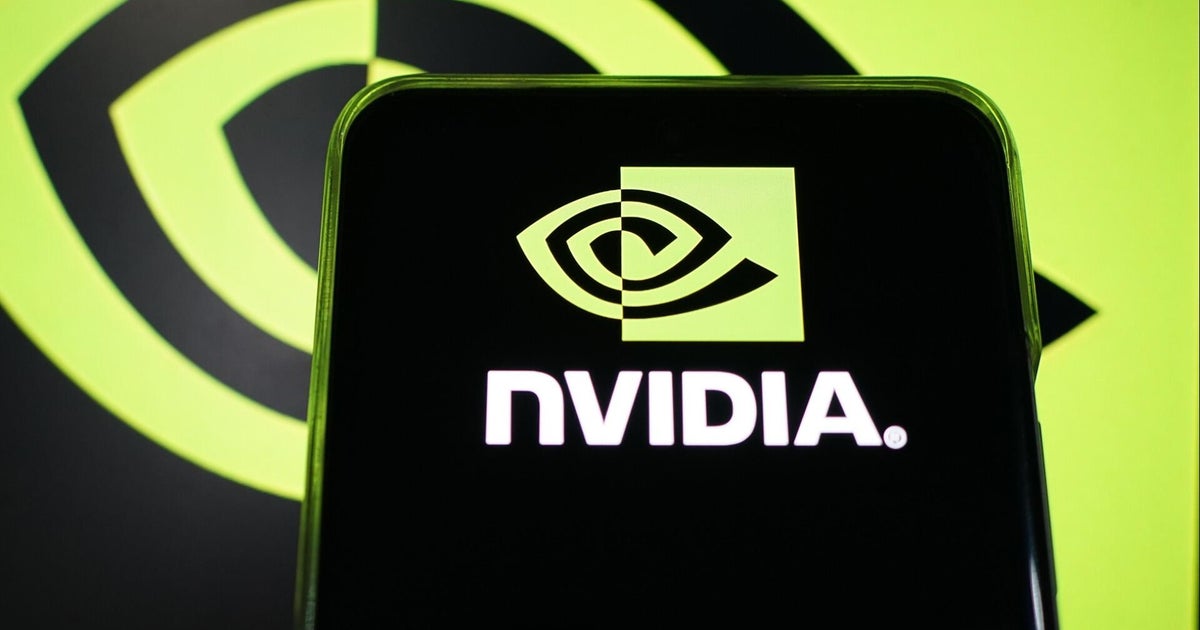Is Nvidia Breaking Antimonopoly Laws in China?

Published: 2025-09-15 11:58:52 | Category: Trump GNEWS Search
China has accused Nvidia of breaching its antimonopoly laws, prompting increased scrutiny of the chipmaker amid tense U.S.-China trade relations. This comes as both nations engage in critical trade talks, emphasizing ongoing competition in the technology sector.
Last updated: 30 October 2023 (BST)
Key Takeaways
- China's regulators are investigating Nvidia for alleged antimonopoly violations related to its 2020 acquisition of Mellanox.
- The scrutiny intensifies amid ongoing U.S.-China trade negotiations in Spain.
- Nvidia's share price has seen a decline following the news, reflecting investor concerns.
- China is also conducting an antidumping investigation into U.S. chip imports.
- The situation highlights the increasing tensions surrounding the tech industry and trade policies.
Overview of Nvidia's Situation
Nvidia, headquartered in Santa Clara, California, is the world's leading semiconductor manufacturer, holding significant sway in the global tech landscape. As the U.S. and China engage in a protracted trade war, Nvidia finds itself at the centre of these geopolitical tensions. The recent accusations from Chinese authorities mark a new chapter in the ongoing scrutiny faced by the tech industry amid regulatory challenges.
China's Antimonopoly Investigation
The Chinese government has announced a further investigation into Nvidia, specifically linked to its acquisition of Mellanox Technologies for $6.9 billion in 2020. This acquisition aimed to bolster Nvidia's data centre capabilities but has since raised concerns regarding market competition and monopoly practices.
In a preliminary assessment, Chinese regulators indicated that Nvidia may have violated antimonopoly laws, which could lead to significant repercussions for the company, including potential fines or altered business practices. Such regulatory actions reflect China's commitment to maintaining market competition, especially in key sectors like technology.
Impact on Nvidia's Stock Performance
Following the announcement of the investigation, Nvidia's shares fell by $2.81, or 1.6%, to $175.01 in premarket trading. This decline illustrates investor apprehension regarding the implications of the regulatory scrutiny in China, a critical market for Nvidia's operations. As investors closely monitor the situation, any further developments could significantly impact Nvidia's market valuation.
Trade Talks and Their Implications
The timing of China's actions coincides with ongoing trade talks between U.S. and Chinese officials in Madrid. U.S. Treasury Secretary Scott Bessent is meeting with Chinese Vice Premier He Lifeng to discuss various issues, including tariffs and national security concerns, particularly relating to the social media platform TikTok.
This round of negotiations is particularly crucial as it follows previous meetings in London, Geneva, and Stockholm, where both sides agreed to temporary pauses on reciprocal tariffs. The discussions aim to prevent an escalation into an all-out trade war, which could have dire implications for global markets.
China's Broader Trade Strategies
In addition to the investigation into Nvidia, China's Ministry of Commerce recently announced an antidumping investigation into specific analogue integrated circuits (ICs) imported from the U.S. This move targets commodity chips produced by companies like Texas Instruments and ON Semiconductor, further highlighting China's strategy to scrutinise U.S. imports amidst trade tensions.
Moreover, the Ministry has launched a separate antidiscrimination probe concerning U.S. measures against Chinese chip manufacturers. These actions underscore China's commitment to protecting its domestic industries and ensuring fair competition in the market.
Nvidia's Role in U.S.-China Relations
Nvidia's position as a leading semiconductor maker places it at the heart of the tech rivalry between the U.S. and China. The company has faced increasing restrictions on chip exports to China, initiated during the Trump administration and reinforced under President Biden. These export controls aim to limit China's access to advanced technologies, a strategy viewed as crucial for maintaining U.S. technological superiority.
Understanding the Trade War Context
The U.S.-China trade war has evolved significantly since its inception, with technology and trade policies forming a core part of the conflict. As both nations strive for technological supremacy, companies like Nvidia are often caught in the crossfire of regulatory scrutiny and market pressures. The ongoing investigations and discussions highlight the complexities of international trade relations and the intricate web of regulations governing technology transfers.
What Happens Next?
As the investigations into Nvidia progress, the implications for the company and the broader tech industry remain uncertain. Should the Chinese regulators find substantial evidence of antimonopoly violations, Nvidia may face hefty fines or be required to alter its business practices in China, potentially hampering its growth in one of the world's largest markets.
Moreover, the outcome of the ongoing trade talks could significantly influence future U.S.-China relations. If both sides can reach a consensus, it may lead to a more stable trading environment, allowing companies like Nvidia to operate with greater certainty. Conversely, a breakdown in dialogue could exacerbate tensions and lead to further restrictions on trade.
Conclusion
The heightened scrutiny of Nvidia by Chinese regulators is a significant development in the ongoing U.S.-China trade tensions. As both nations engage in critical discussions, the outcomes could have profound implications for the future of the tech industry and the global market. Companies like Nvidia are more than just corporate entities; they are pivotal players in the complex interplay of international relations and economic policies. How these situations unfold will be crucial for both the tech sector and the broader economic landscape.
As we watch these developments, one can only ponder: how will the future of technology and international trade be shaped by these ongoing tensions? #Nvidia #TradeTalks #ChinaUSRelations
FAQs
What are the allegations against Nvidia?
Nvidia is accused of breaching China's antimonopoly laws in relation to its 2020 acquisition of Mellanox Technologies. Chinese regulators are conducting further investigations into these allegations.
How has Nvidia's stock reacted to the news?
Following the announcement of the investigation, Nvidia's shares fell by 1.6% in premarket trading, reflecting investor concerns about the potential repercussions of the scrutiny.
What is the significance of the U.S.-China trade talks?
The ongoing trade talks are crucial as they address tariffs and national security issues, particularly involving technology and social media platforms like TikTok. The outcomes may influence future trade relations between the two nations.
What is the context of the U.S.-China trade war?
The U.S.-China trade war involves a series of tariffs and trade restrictions aimed at protecting domestic industries and maintaining technological supremacy. The conflict has significantly impacted global trade dynamics.
What could happen if Nvidia is found guilty of antimonopoly violations?
If found guilty, Nvidia could face substantial fines or be required to change its business practices in China, which could hinder its growth and operations in a critical market.



